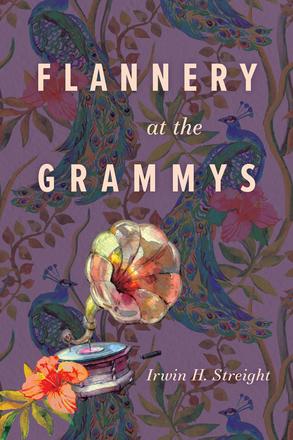
Flannery at the Grammys
How a southern writer's power reverberates through acclaimed popular music
Description
A devout Catholic, a visionary—and some say prophetic—writer, Flannery O’Connor (1925–1964) has gained a growing presence in contemporary popular culture. While O’Connor professed that she did not have an ear for music, allusions to her writing appear in the lyrics and narrative form of some of the most celebrated musicians on the contemporary music scene. Flannery at the Grammys sounds the extensive influence of this southern author on the art and vision of a suite of American and British singer-songwriters and pop groups.
Author Irwin H. Streight invites critical awareness of O’Connor’s resonance in the products of popular music culture—in folk, blues, rock, gospel, punk, heavy metal, and indie pop songs by some of the most notable figures in the popular music business. Streight examines O'Connor's influence on the art and vision of multiple Grammy Award winners Bruce Springsteen, Lucinda Williams, R.E.M., and U2, along with celebrated songwriters Nick Cave, PJ Harvey, Sufjan Stevens, Mary Gauthier, Tom Waits, and others.
Despite her orthodox religious, and at times controversial, views and limited literary output, O’Connor has left a curiously indelible mark on the careers of the successful musicians discussed in this volume. Still, her acknowledged influence and remarkable presence in contemporary pop and rock songs has not been well noted by pop music critics and/or literary scholars. Many years in the making, Flannery at the Grammys achieves groundbreaking work in cultural studies and combines in-depth literary and pop music scholarship to engage the informed devotee and the casual reader alike.
Reviews
"This astute study by Streight, an English professor at the Royal Military College of Canada, traces Flannery O’Connor’s influence on Bruce Springsteen, U2, Lucinda Williams, and other musicians. The connections that Streight unearths intrigue. . . . This will entrance music lovers with a literary bent."
- Publishers Weekly
"Flannery O’Connor was a great writer who lived a short life. Born with the proverbial tin ear, she knew nothing about music. So, it is more than ironic that the likes of Bruce Springsteen, Lucinda Williams, Mary Gauthier, Kate Campbell, Sufjan Stevens, Nick Cave, PJ Harvey, and others found inspiration and a sense of shared humanity in her Christ-haunted stories. In this compelling and endlessly fascinating exploration of O’Connor’s oversized cultural impact on contemporary music and popular culture, Irwin H. Streight has written an important addition to the O’Connor canon, full of insightful critical commentary, making connections between stories and songs, and finding, as she did, the sacred within the profane."
- June Skinner Sawyers, author of We Take Care of Our Own: Faith, Class, and Politics in the Art of Bruce Springsteen